Tzav 5782 – The Proper Conduct in Shidduchim
In Honor of our Parents Alfred & Esther Harary by their Children & Grandchildren
Visit YTATorah.org
Shiur presented in 5780
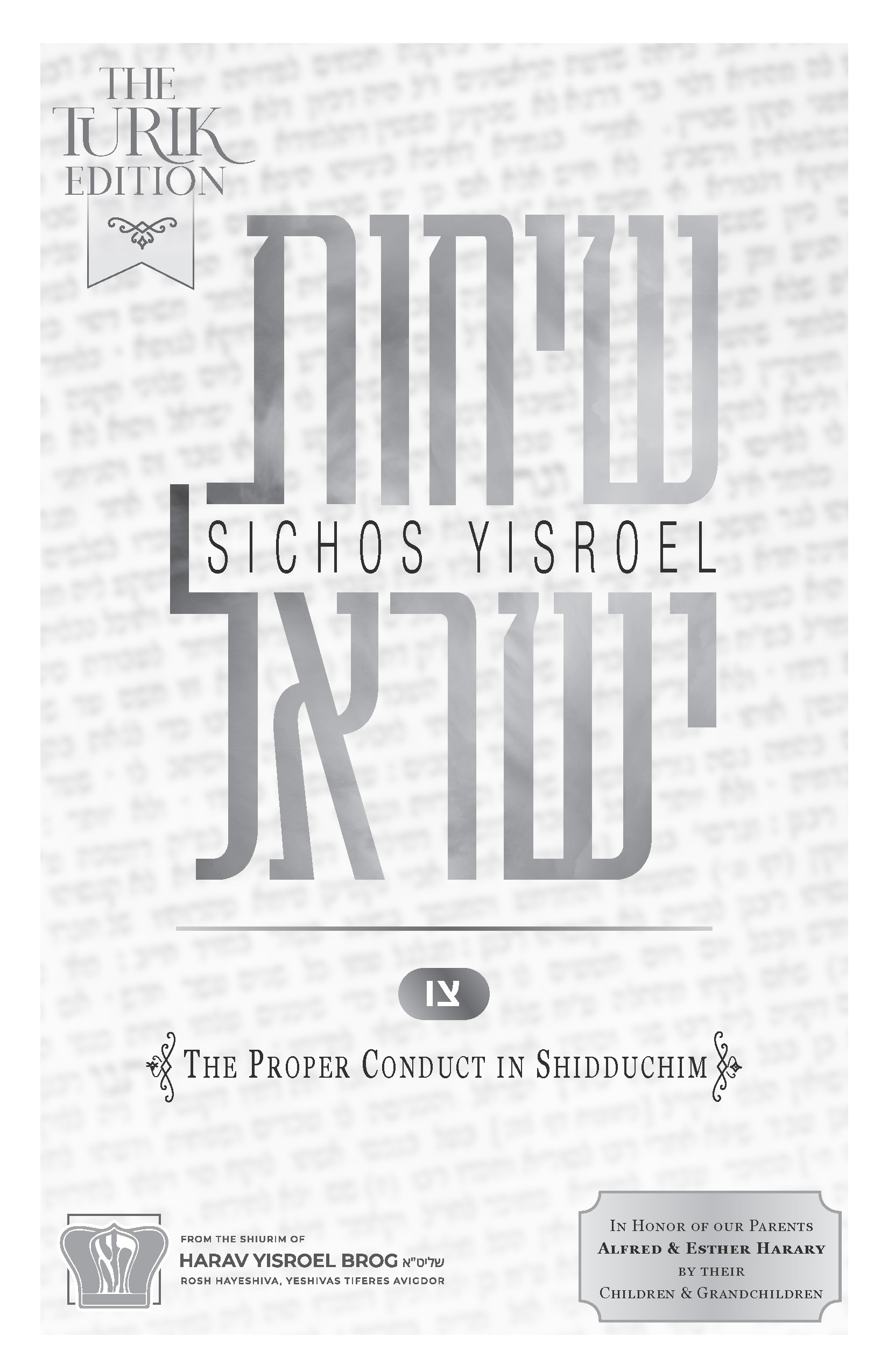
In Honor of our Parents Alfred & Esther Harary by their Children & Grandchildren
Visit YTATorah.org
Shiur presented in 5780
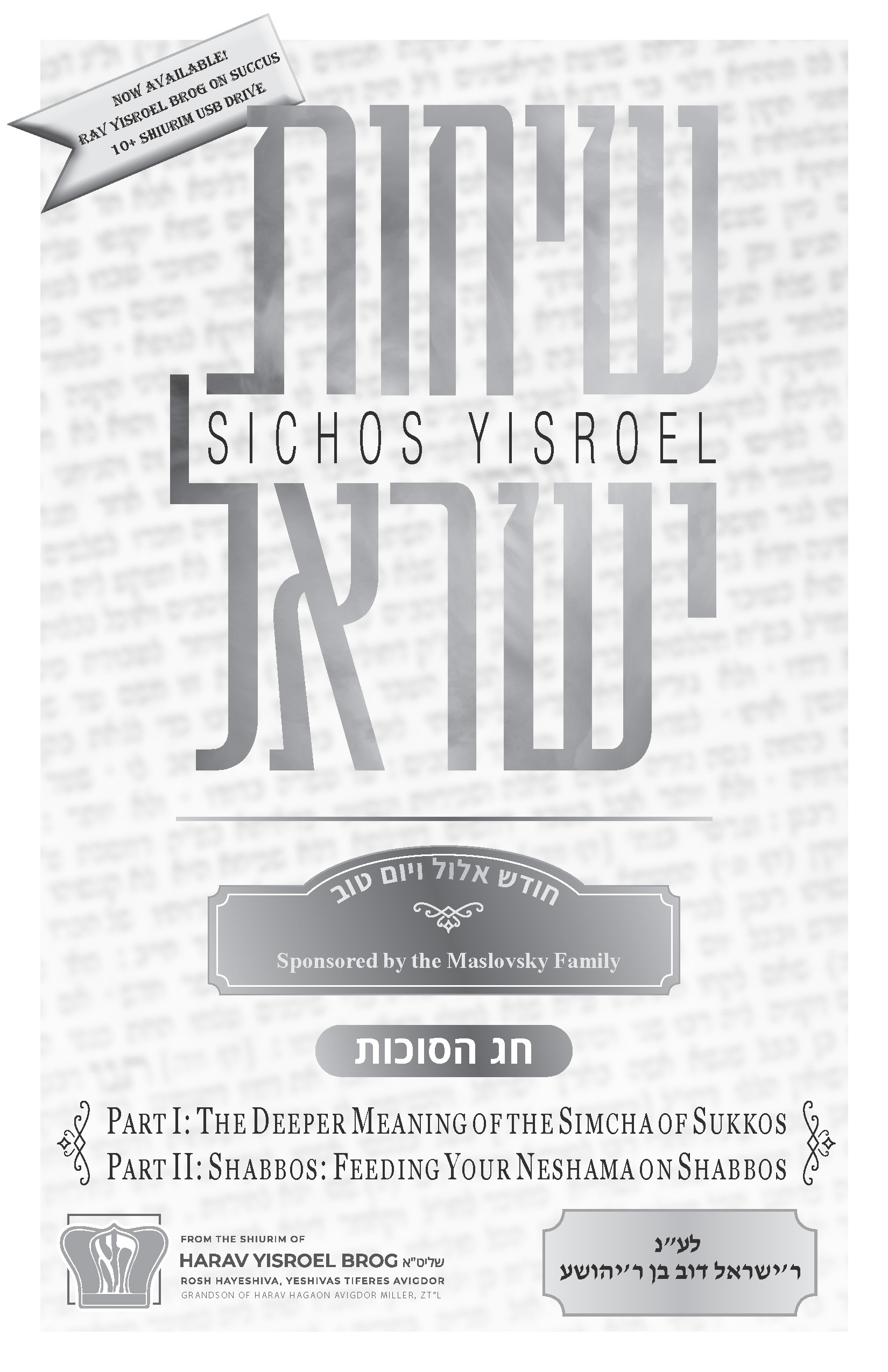
We see in the gemara Rosh Hashanah (16a) that on the chag of Sukkos we are judged regarding water. It says: On Chag we are judged on water. Now, lechorah on Rosh
Hashanah, a person was already judged regarding all his personal matters and all of it was sealed on Yom Kippur. So what is the idea of being judged on water on Chag?

Sponsored Anonymously Visit YTATorah.org Shiur presented in 5778
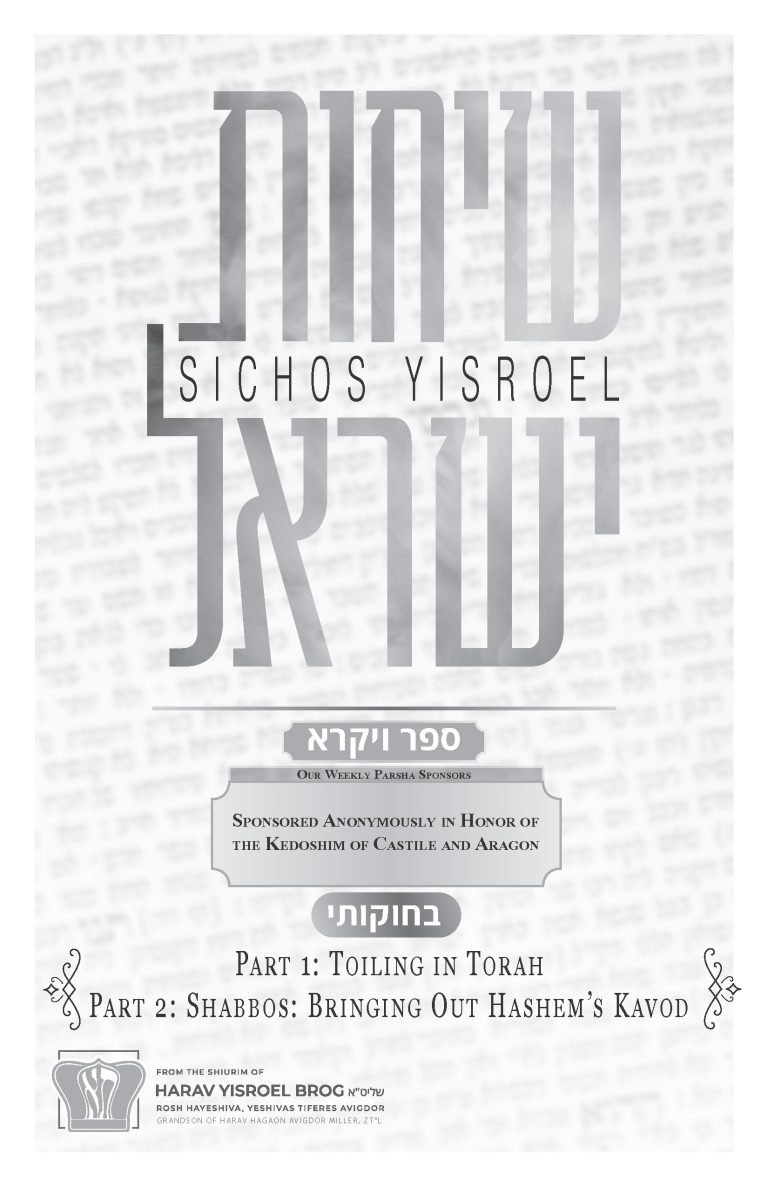
In the parshah it says, “if you walk in my statutes” (Vayikra 26:3). Rashi says when it says “and you should be shomer all My mitzvos,” so fulfillment of all the other mitzvos is covered with these words. That covers all the mitzvos. So how do I explain the words “if you walk in my statues”? What does that refer to?
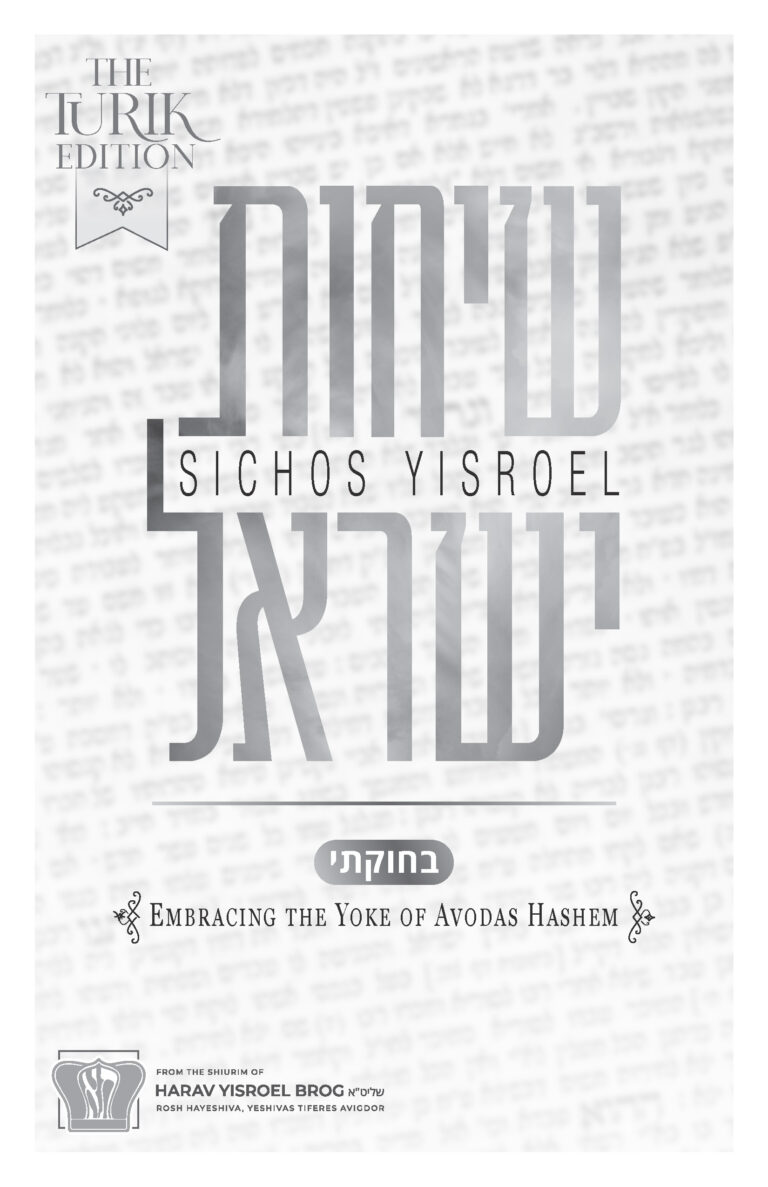
Consider sponsoring a shiurVisit YTATorah.org Shiur presented in 5778
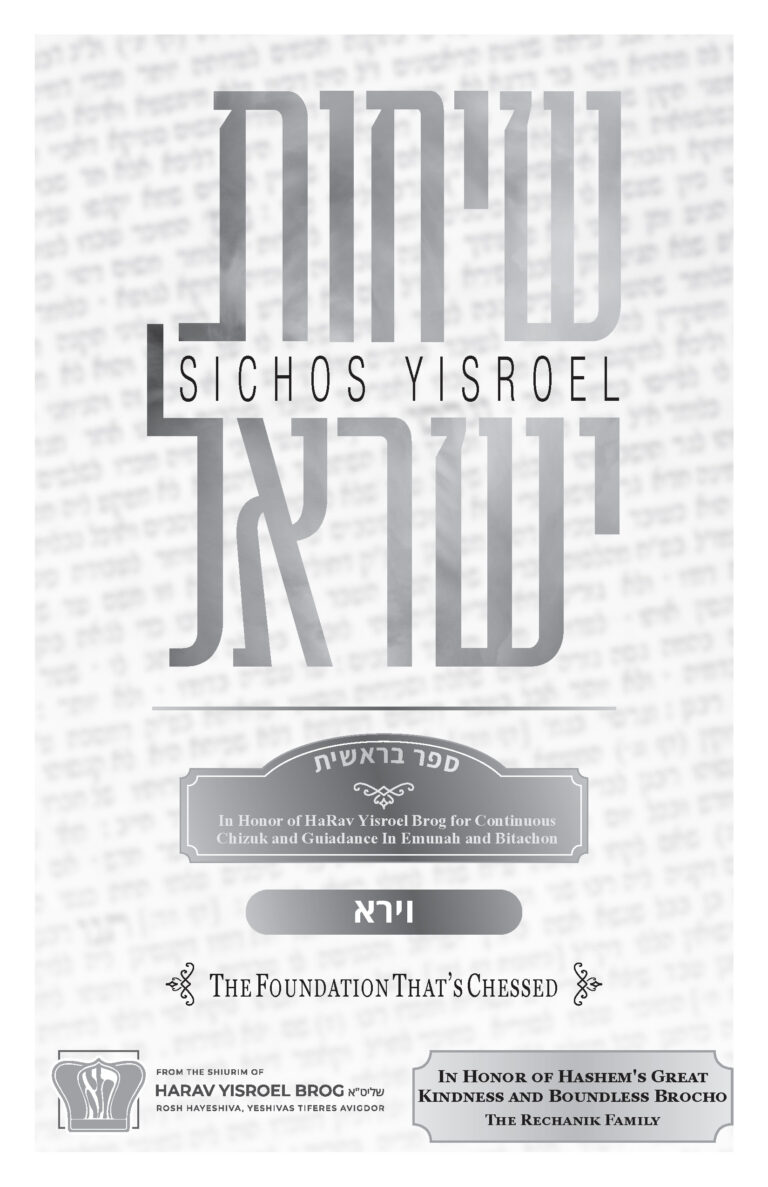
Sponsored In Honor of Hashem’s Great Kindness and Boundless BrochoThe Rechanik Family Consider sponsoring a shiurVisit YTATorah.org Shiur presented in 5782 Only One Pillar Still Remains וירא אליו ה’ באלני ממרא והוא ישב פתח האהל כחם היום (רש”י ד”ה פתח האהל: לִרְאוֹת אִם יֵשׁ עוֹבֵר וָשָׁב וְיַכְנִיסֵם בְּבֵיתוֹ) We all know that the world stands…
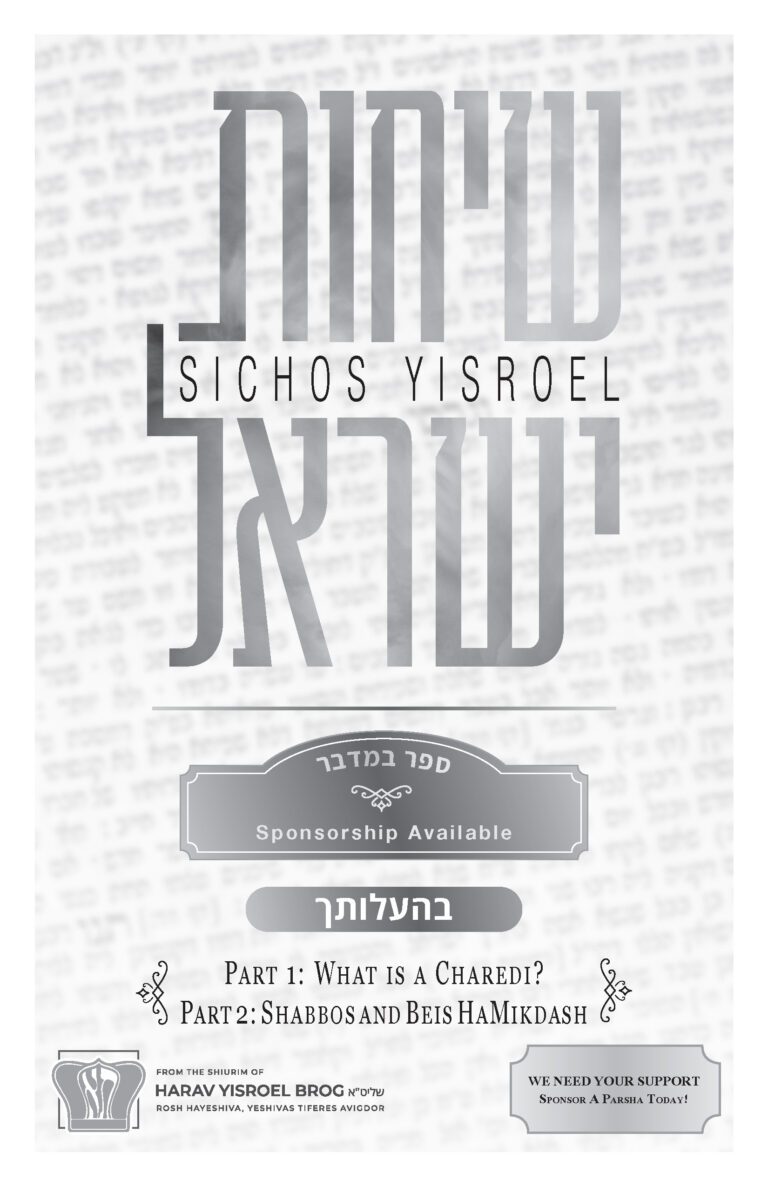
In this week’s parsha, we are told about an episode with a group of people who expressed their regret and pain over the fact that their impurity prevented them from bringing the korban pesach. Their sheila was that if there was some hope for them not be left out from Klal Yisroel (Bamidbar 9:6-14). The emes is that this is a really strange episode because they understood that they were tamei, and someone’s who’s tamei cannot bring a Korban Pesach, so what were they asking? Did they think that Moshe Rabbeinui could provide them with a “new” Torah? Why did they even bother to come?